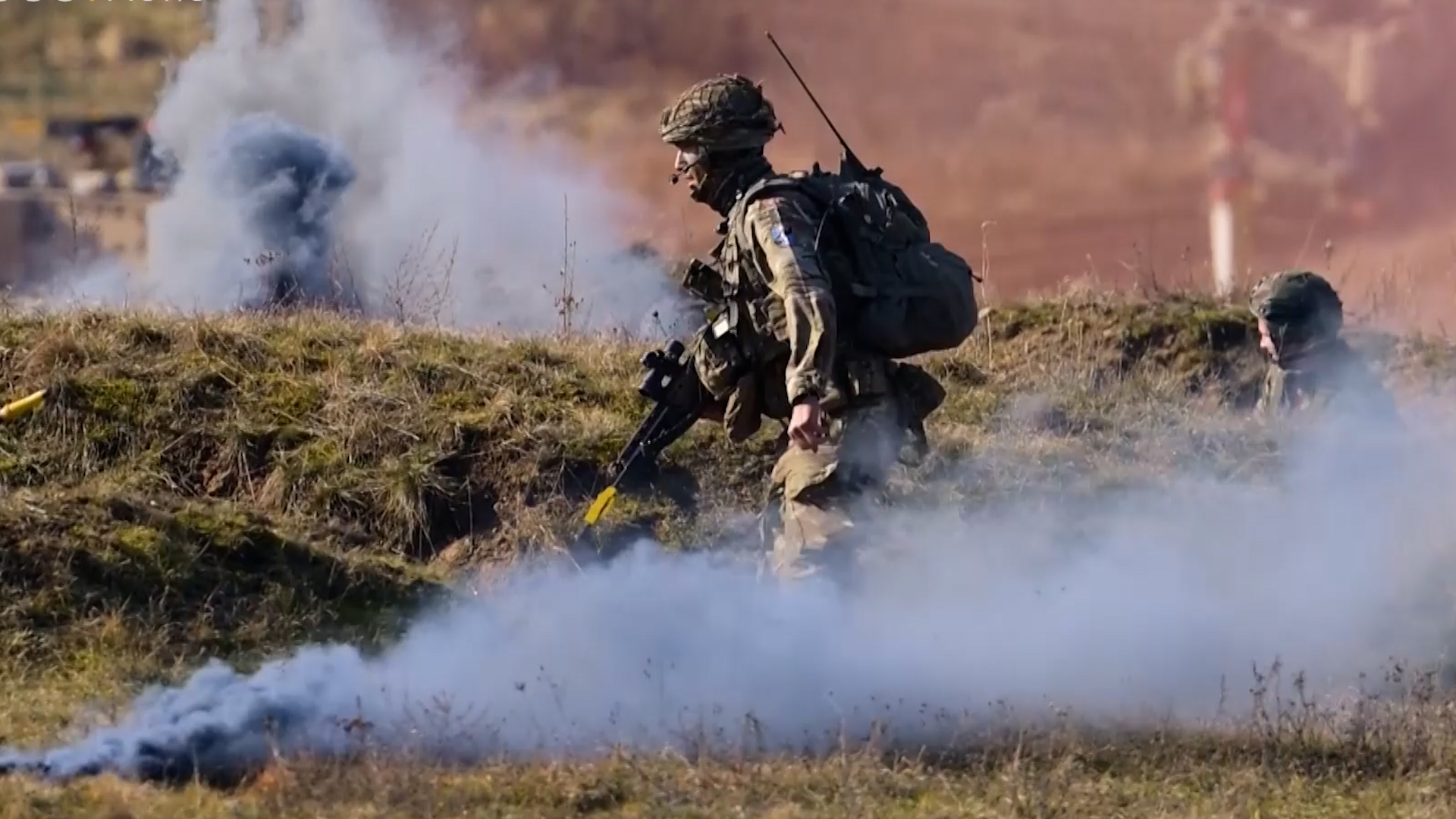
Sitrep: Nato is 75 years old – and the alliance has never felt closer to war

Nato is in its 75th year and, as defence ministers get ready to meet at the alliance's conference in Washington, Nato has never been closer to war in Europe since its formation.
Oana Lungescu, who spent more than a decade working side by side with the Nato Secretary General and is now part of the military think tank RUSI, was on the latest episode of the Sitrep podcast – which analyses the top defence stories of the week and is available wherever you get your podcasts.
Joining her was America's former commanding general in Europe, Ben Hodges, and the podcast's resident expert Professor Michael Clarke, former Director-General of RUSI.
The danger of war in Europe
The upcoming Nato conference in Washington is an opportunity to work out exactly how the alliance intends to protect its members, and Professor Clarke said more practical help for Ukraine would go a long way to achieve this.
"This summit needs to convince the Russians that Nato is not going to give up," he said.
"And they can say it won't give up, but it's got to do things to indicate that it won't.
"So the best thing for European defence at the moment is to help Ukraine to prevail in the war it is now fighting for its own survival.
"That's the single biggest issue for the rest of us."
Oana Lungescu added that a bigger political message that the summit sends, a message of unity and readiness, will be the most important one.
"This will be a message and the summit that will be watched not only by allied nations and populations but also by Russia and China and others around the world very closely," she said.
However, "the dangers feel now the way they did when Nato was formed" Professor Clarke pointed out.
"When the treaty was first concluded, it was just a treaty and people thought, well, that's all well and good, So what?" he said.
"And then the Korean War broke out in 1950 and in those early years, those years after 1950 to '54, '55, it really felt to Nato as if the alliance would have to fight again in a rather Second World War style.
"I have no hesitation in saying that the 2020s feel very like that period of the 1950s.
"NATO has never felt closer to having to either fight or be prepared to fight.
"That's where we are today."
Trenches, missile defence and misinformation
So, if we are closer to war than ever before, Nato allies need to be ready to defend their territory.
This has seen Latvia digging trenches on its border with Russia, while Poland has got a £2bn project for 430 miles of defences, including tank traps and barriers, along its border.
On their own, says Lieutenant General Ben Hodges, these moves are not enough.
"I think these are important, but they're not standalone developments," he said.
"I tell my friends in Lithuania, for example, and in Poland, I said, you should assume that you're going to be without external reinforcements, and I say this to the Romanians, as well, for up to two weeks," he said.
"If we are caught by surprise, which should not happen, but it happens all the time… it may be as long as two weeks before external forces begin to arrive," he said.
"So whatever is in Estonia, which would, of course, include British forces and other allies that are part of the enhanced forward presence, that's it until other things begin to arrive."
Exercise, exercise, exercise
So what needs to be done to ensure Nato can tackle these issues? Lt Gen Hodges believes it lies in exercising until failure.
"You have to exercise, exercise, exercise over and over and over, as we did in the Cold War," he said.
"You could count on minimum once a month, if not more frequently being called out to go to your general defence position.
"You knew every farmhouse. You knew exactly [where] the wires were, I mean, you knew everything.
"You practice it over and over and over. That's what it takes now.
"I think with these plans, you have to exercise to the point of failure. I mean push, push, push, so you can discover where the gaps are in communications and logistics."
Recently, Nato conducted Exercise Steadfast Defender, its largest set of drills since the Cold War.
And whilst this exercise did go some way to replicating what Nato may do in response to a conflict, Lt Gen Hodges said all of the "movements will have been planned a year ago".
"You can order the trains, you could get the permissions, you could do everything, which is as it is on big exercises.
"You can't just surprise the good people of Poland or Norway, or wherever you're exercising.
"There's not a lot of failures involved in these big exercises and I think you have to exercise also to the point of failure, especially when it comes to the air and missile defence."
You can listen to Sitrep wherever you get your podcasts, including on the Forces News YouTube channel.







